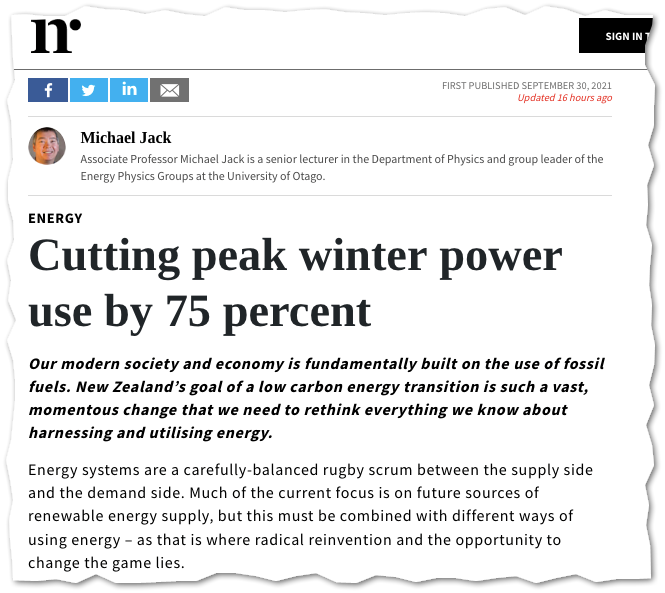It’s great to see this piece in popular media, outlining research that shows that, like the rest of the world, New Zealand’s path to a zero carbon future requires homes that need nearly no power for winter heating. The Passive House standard is measured and verified in New Zealand as needing 90% less energy to heat both new homes and certified retrofits (ie PHI EnerPHit).

“This paper quantifies the potential future reduction in winter electrical heating that could be achieved through widespread uptake of energy efficient dwellings in New Zealand – a country with a high percentage of renewable electricity. The results show that rapid uptake of currently achievable best-practice standards could reduce the winter-summer demand variation by 3/4 from business as usual by 2050. Therefore, New Zealand, and other countries with seasonal peaks in space heating/cooling demand, should urgently adjust policy settings to mandate highly energy-efficient housing for new-builds and retrofits in order to deliver a least cost low-carbon energy transition, which also captures the well-known social and health co-benefits of improved dwelling performance.”
The lead author of this research, Associate Professor Michael Jack, will be presenting this research at the South Pacific Passive House Conference in November. I am presenting a paper on low carbon retrofits for New Zealand (EnerPHit by the component method) among three other papers on retrofits.